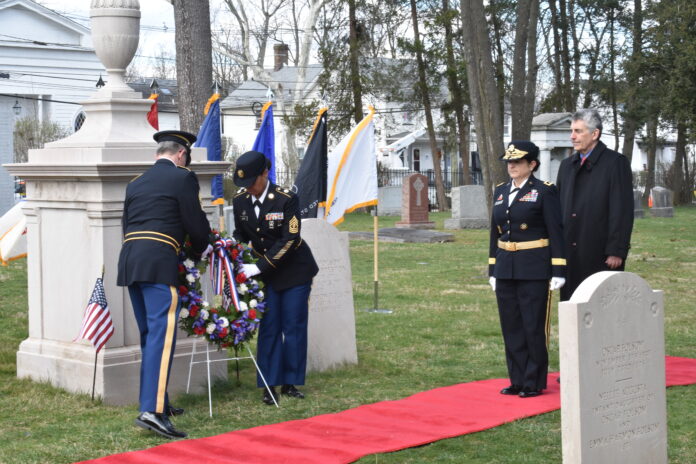
Commemorating the life and achievements of former President Grover Cleveland, soldiers from the Army Reserve’s 99th Readiness Division, local officials and residents gathered together for an annual wreath-laying ceremony at his grave inside Princeton Cemetary.
On his birthday of March 18, Maj. Gen. Kris Belanger, commanding general of the Army Reserve’s 99th Readiness Division, and Princeton Mayor Mark Freda standing side by side paid their respects to the former president with a presentation of the wreath as “Taps” was played by the 78th Army Band.
“President Cleveland served continuously his entire lifetime. He dedicated a lifetime of service to this nation and anyone who is in uniform or who has ever served can certainly relate to that,” Belanger said.
“President Cleveland stood on principles and values during an era of significant political turmoil and his strength of character, commitment, and courage are attributes to emulate today.”
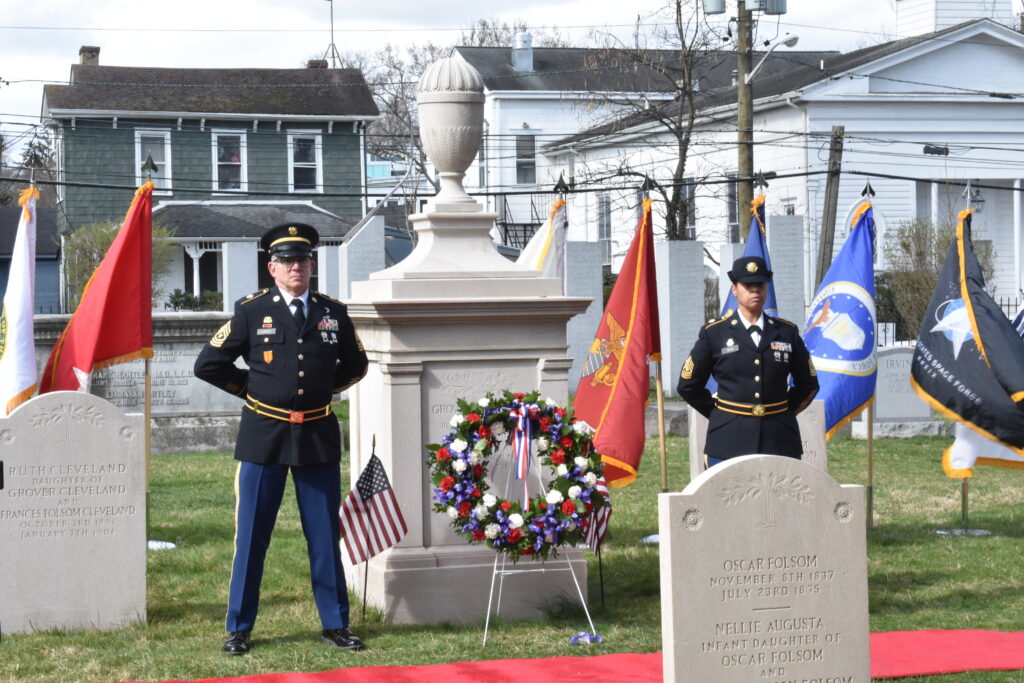
The wreath-laying ceremony, which is hosted by the U.S. Army Reserve’s 99th Readiness Division, is managed and administered by the White House Military Office.
The White House Military Office is responsible for coordinating the annual placement of presidential wreaths at the tombs and resting places of former presidents and other famous Americans, and at certain memorials of historic significance.
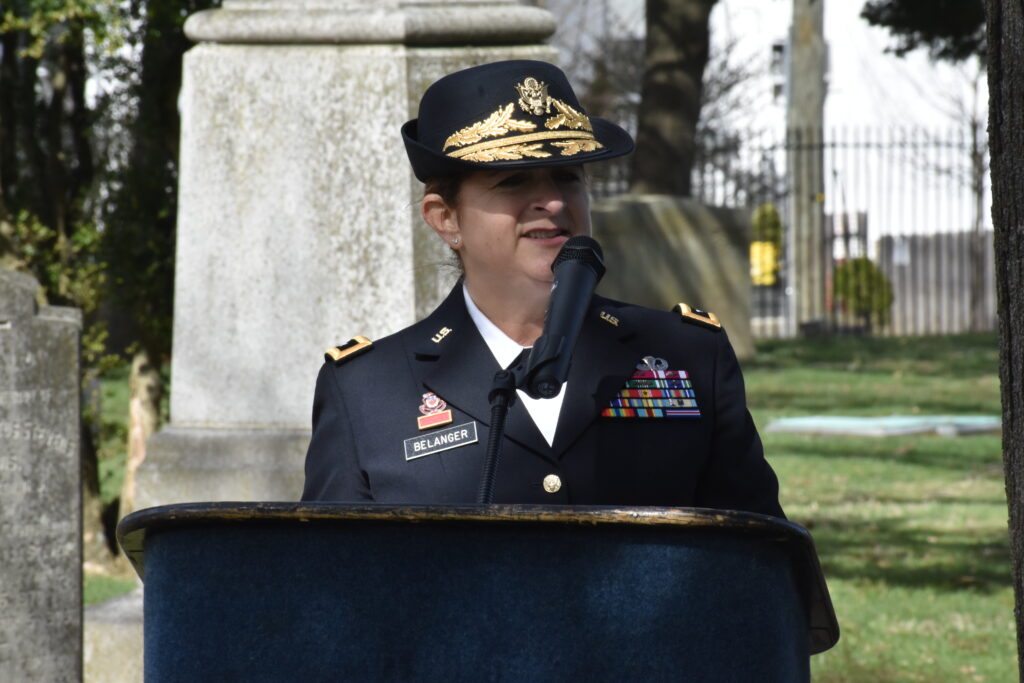
Maj. Gen. Kris Belanger (center) during the ceremony in Princeton.
“President Cleveland lived the value of selfless service during his 71 years putting the welfare of the nation and its citizens before his own during a life started and ended right here in the Garden State,” Belanger added.
Honoring Cleveland and commemorating his 187th birthday, speakers shared the history and story of America’s only president to serve two nonconsecutive terms and so far, the only president who was born in New Jersey. He was born in Caldwell, Essex County.
“He was the 22nd and 24th President of the United States. How did he get there? It is amazing he did it in three years,” said Robert Maguire, civilian aide to the Secretary of the Army (Emeritus) for New Jersey.
“He was the mayor of Buffalo, New York in 1882. One year later [in 1883], he was the Governor of New York and then in 1885 within this three-year period of time he became the president of the United States.”
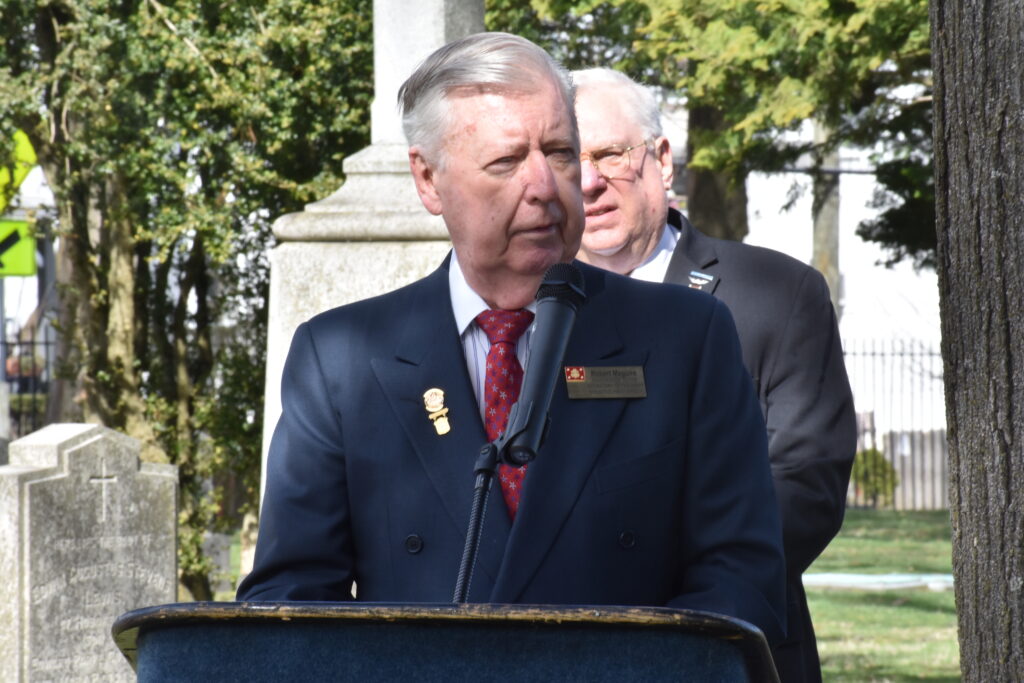
Robert Maguire (center), civilian aide to the Secretary of the Army (Emeritus) for New Jersey, delivers his remarks during wreath-laying ceremony.
Maguire explained that Cleveland was praised for honesty, self-reliance and integrity. He said, “[Cleveland] relentlessly fought political corruption and bossism.”
Cleveland, who was a Democrat, served in the presidency from 1884-88, and from 1892-96. He went on to settle in Princeton after he left the White House in 1897.
In Princeton, Cleveland would become a trustee of Princeton University and “he consulted occasionally with President Teddy Roosevelt.”
“Teddy Roosevelt compared him to a happy warrior who had served on honorable terms and understood that the presidency was public trust bestowed upon him by the people,” Maguire said.
In 1908, Cleveland suffered a heart attack and died on June 24. Maguire noted Cleveland’s final words were “I have tried so hard to do right.”
Before he became president, Cleveland was a teacher at the New York Institute for the Blind; served as an assistant district attorney for Erie County; elected sheriff of Erie County; a lawyer in Buffalo, N.Y.; and elected mayor of Buffalo and the governor of New York.
“Every year a number of us do make it here and honor Grover Cleveland. I just want to point out a few things about history and how we should always remember history,” Freda said.
The mayor remarked how people may know Cleveland as the only president to serve two nonconsecutive terms but may not know that he actually ran for president four times.
“He won his first term. His attempted second term where he did not win, he actually did not have enough electoral votes, so even though he won the popular vote he did not win the electoral college and he did not become president,” Freda said.
“So, it is interesting that the same discussion we are having today about the election of the president, popular vote versus the electoral college goes way back and [they] are just repeating themselves again.”
Cleveland ran a third time and won the popular vote again. This time the race featured a third-party candidate – James Weaver, who was the Populist Party nominee, Freda said.
“[Cleveland] was able to win both the popular vote and electoral college the third time he ran [to serve] his second term as president,” he said.
“After his second term as president he ran one more time, but there was the Great Panic of 1893 [during his second term] and that caused economic chaos and he was in the Democratic party at that time, and they lost power.”
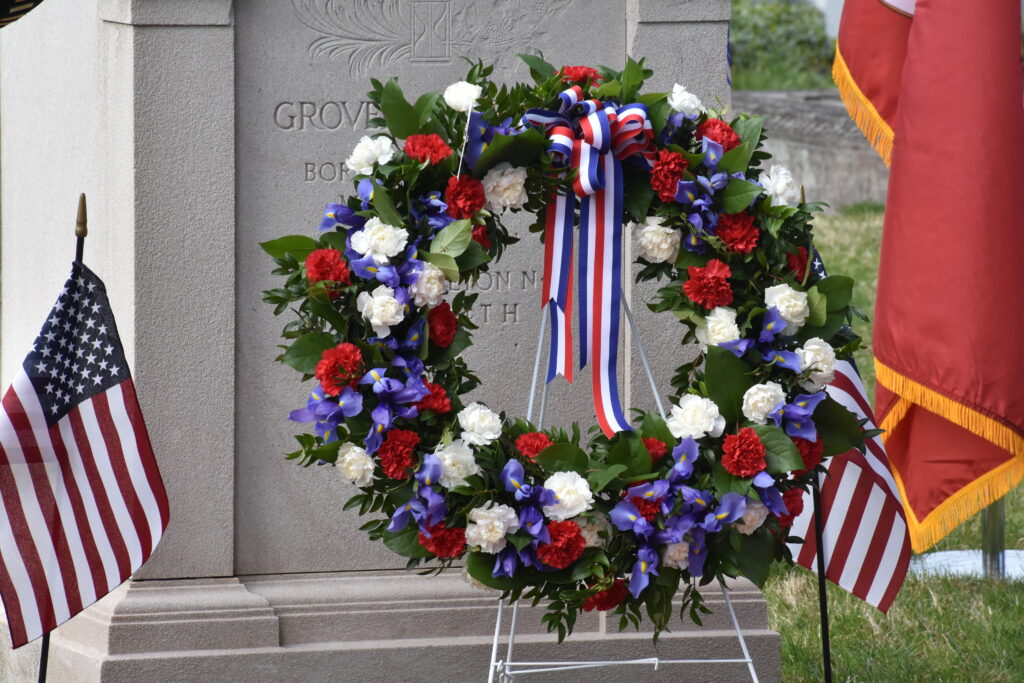
A wreath placed in front of former President Grover Cleveland’s headstone in Princeton Cemetary.

